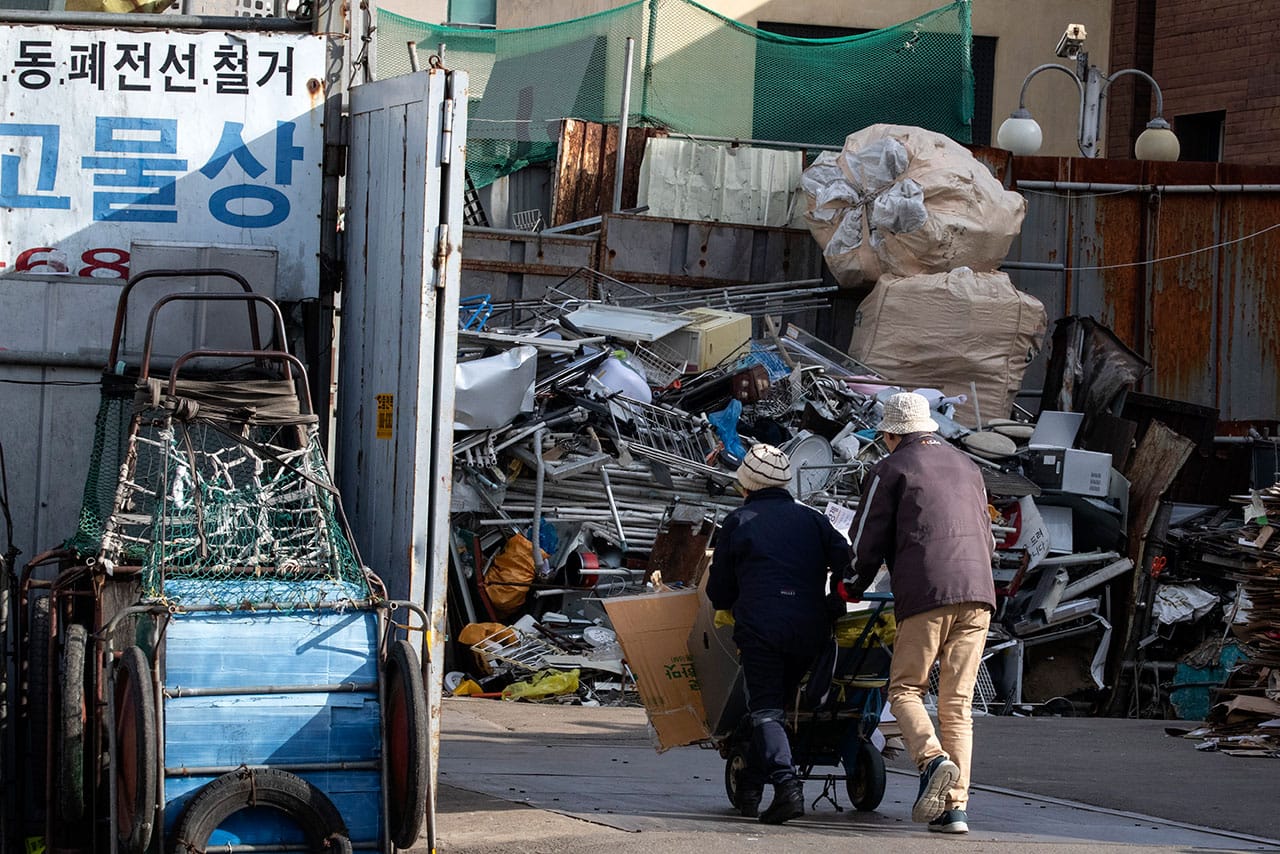Photo: Elderly man collects junks to be sold. Credit: SisaIN.
South Korea is commonly caricatured as a hyper-capitalist hell, with an ever-growing chasm separating between the rich and the poor. But a recent study shows that income inequality in South Korea has steadily decreased over the past two decades. According to Two Decades of Earnings Inequality and Dynamics in Korea by Jang Yong-seong 장용성 and Han Jong-seok 한종석, workers in the top 90th percentile earned 10.5x in income compared to workers in the bottom 10th percentile in 2002 - a gap that had narrowed by 27.4%, to 7.6x, as of 2022.
South Korea managed a significantly greater reduction in income inequality than other advanced industrial economies such as Canada (6.3%) or Germany (2.5%) over the same period. South Korea’s improvements owed largely to a significant boost in income for the bottom 10th percent, whose wages increased by 65.9% over the last two decades while the top 90th percent saw an increase of 20.4%. Aggressive measures to increase the minimum wage and reduce the education gap also helped to ensure more equality in incomes. (See previous coverage, “How South Korea Avoided Japanization.”)








